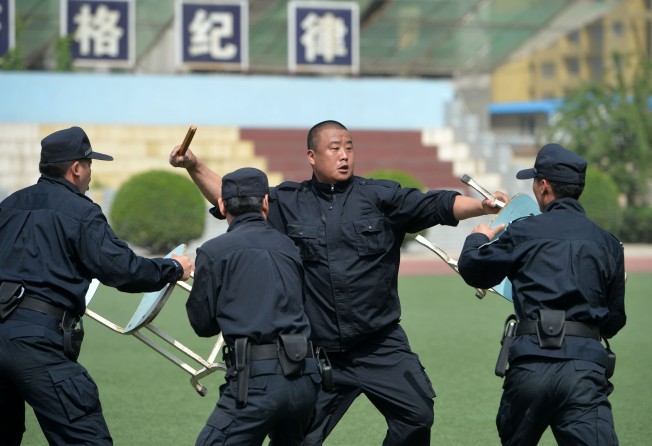
Hong Kong 'no longer safe' from threat of global terrorism, expert warns

As Britain raised its terror threat alert to the second-highest level in a five-tier system, an international expert said Hong Kong faced a much greater threat of an attack due to the globalised nature of extremism.

His comments came as Britain on Friday raised its threat level from "substantial" to "severe", indicating that an attack was highly likely. Hong Kong's terrorist threat level remained unchanged at "moderate".
Barton said the rise of Islamic State, which has seized large areas in Iraq and Syria, and its recent release of a video showing the beheading of an American reporter, had made local conflicts global.
"Increasingly local conflicts are drawn into global narratives and this is particularly the case with al-Qaeda-inspired movements," he said.
"We have seen this develop in a frightening way in China over the last few years as local Uygur movements appear to have been at least partially subsumed by global jihadis."
In recent months, the restive northwestern region of Xinjiang has witnessed an upsurge in violence, which Beijing has blamed on Muslim separatist militants.
Reports of Uygur separatists fighting in Afghanistan change risk factors globally, and "greatly increases the risk of violent attacks on soft targets largely unrelated to local issues", Barton said.
Terrorism might not be Hong Kong's top concern, as the city has "other threats that are more serious by a long measure", such as organised crime and narcotics, Barton said. But he said it could no longer be complacent about preparedness for a possible attack.
"It was only a few years ago that you would have thought the Uygur issue was really confined to Xinjiang and not a big threat to far beyond that province, but now we have seen that that's morphing and changing," he said. In March 2011, the police force set up a 60-person team to protect "critical infrastructure" from attacks, working with possible targets such as banks, power plants and the MTR.
This was in addition to the 35-officer counter-terrorism response unit established by police in August 2009.
Foreign fighters returning home after stints with Islamic State in Iraq and Syria was "the game changer for everyone", Barton said. "That is increasingly going to drive change for China and all across Asia."